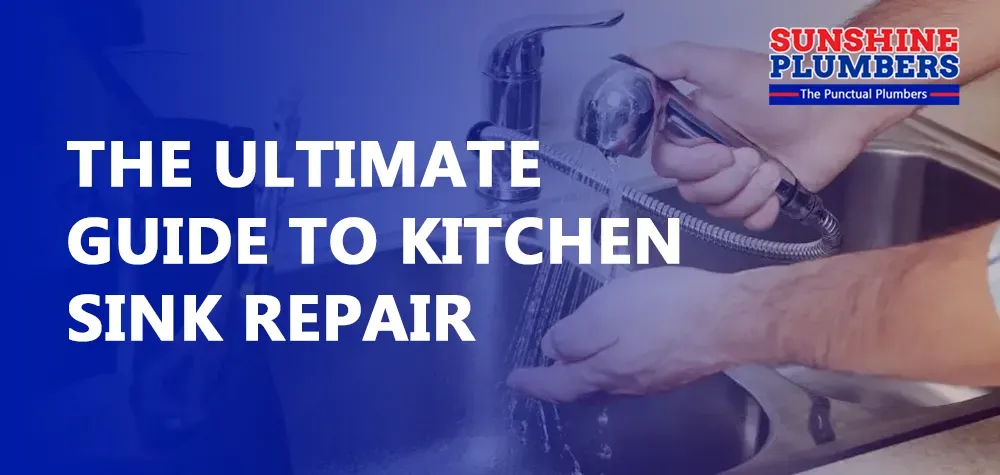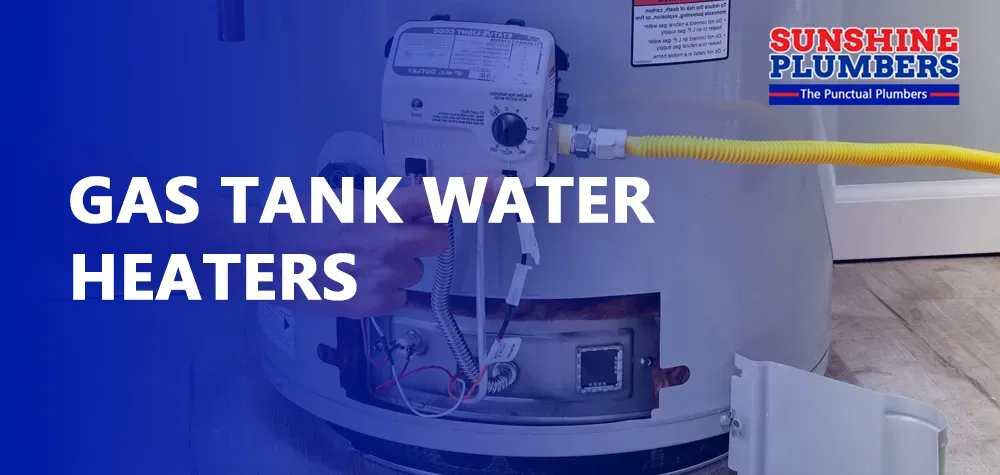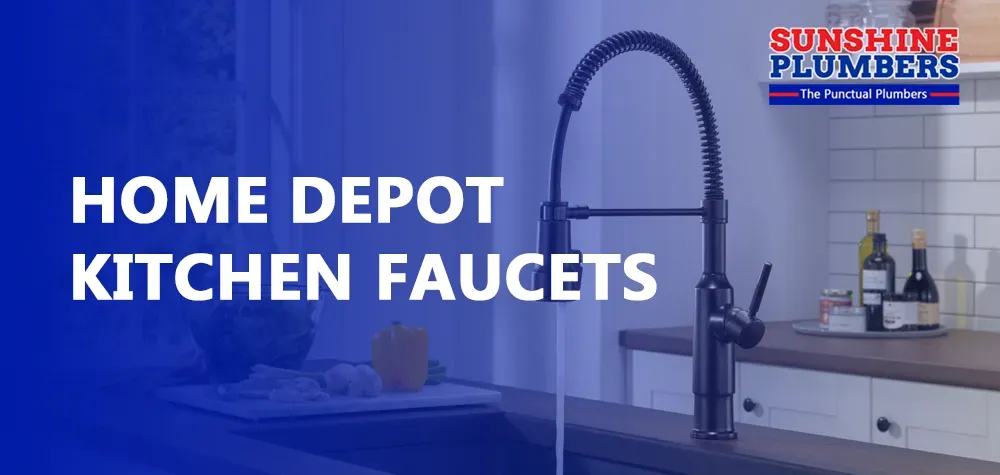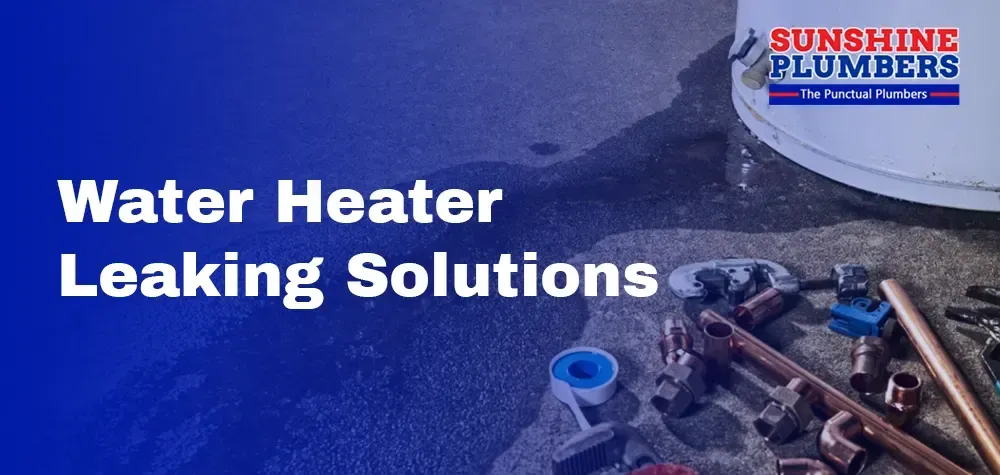Troubleshooting Guide: Water Heater Leaking Solutions
Unlocking the Secrets of Water Heater Leaks
Embarking on the journey of homeownership, one of the last things you want to encounter is a water heater leaking. It's a scenario that can send shivers down any homeowner's spine, triggering concerns about potential damage, increased utility bills, and the inconvenience of dealing with plumbing issues. At Sunshine Plumbers, we understand the unease that comes with a water heater leak, and that's why we've crafted this comprehensive guide to demystify the common culprits behind leaks and empower you with the knowledge needed to address the issue promptly. Join us on a quest to unravel the secrets of water heater leaks and discover practical solutions that not only resolve the immediate problem but also fortify your plumbing for the long run. Your peace of mind begins here with Sunshine Plumbers – where expertise meets reliability.
Identifying the Culprit - Where is Your Water Heater Leaking?
A leaking water heater can be a perplexing issue, but before you can tackle the problem, you need to pinpoint the exact location of the leak. Understanding where the water is escaping is the first step toward effective resolution. Here are the common areas we explore when identifying the culprit behind a water heater leak:
- Pressure Relief Valve:
- This safety valve is designed to release excess pressure from the tank. If you notice water pooling around the pressure relief valve, it could indicate a malfunction. Check for signs of corrosion, loose connections, or a faulty valve that might be causing the leak.
- Drain Valve:
- The drain valve, typically located near the bottom of the water heater, is another potential source of leaks. Sediment buildup or a loose valve may lead to water escaping. Inspect the area around the drain valve for any visible signs of moisture or pooling water.
- Tank Itself:
- Leaks originating from the tank are more serious and require immediate attention. Inspect the tank for rust, corrosion, or visible cracks. A deteriorating tank may lead to substantial leaks, jeopardizing the functionality of the water heater.
Pro Tips for Identification:
- Use a Flashlight: Adequate lighting is crucial when inspecting your water heater. Use a flashlight to carefully examine the pressure relief valve, drain valve, and the exterior of the tank for any signs of moisture or damage.
- Dry the Area: Before conducting your inspection, ensure the area around the water heater is dry. Wipe away any existing moisture to make it easier to spot new leaks during your examination.
- Listen for Hissing Sounds: Sometimes, a leaking pressure relief valve might produce hissing sounds. Listen carefully as you inspect to detect any unusual noises.
DIY Fixes for Minor Leaks
Discovering a minor leak in your water heater doesn't have to be cause for panic. In fact, with a bit of know-how and a few tools, you can often address these issues on your own. Here, we provide step-by-step DIY fixes that homeowners can implement to tackle minor leaks before they escalate into larger, more troublesome problems.
- Tightening Loose Connections:
- Begin by turning off the power supply to the water heater and shutting off the water. Use a wrench to carefully tighten any loose connections around the pressure relief valve, inlet, and outlet pipes. Ensure a snug fit to prevent further leaks.
- Replacing Faulty Valves:
- If the leak is traced back to a malfunctioning valve, replacement may be necessary. For the pressure relief valve or the drain valve, turn off the water heater, drain the tank, and replace the valve with a new one. Be sure to use Teflon tape on the threads to create a secure seal.
- Inspecting and Repairing Pipe Leaks:
- Examine the pipes connected to the water heater for any signs of corrosion, rust, or small leaks. Use a pipe wrench to tighten loose connections or, if necessary, replace damaged sections with new pipes. Apply plumber's tape to the threads for added security.
- Checking Temperature and Pressure Settings:
- Incorrect temperature and pressure settings can contribute to water heater leaks. Ensure the temperature is set within the recommended range and that the pressure relief valve is functioning correctly. Adjust as needed following the manufacturer's guidelines.
Pro Tips for DIY Fixes:
- Safety First: Always turn off the power supply and shut off the water before attempting any DIY fixes. This ensures your safety and prevents further damage.
- Inspect Regularly: Schedule regular inspections of your water heater to catch minor issues before they become major problems. Look for signs of moisture, rust, or corrosion.
- Consult the Manual: Refer to your water heater's manual for specific guidelines on DIY maintenance and troubleshooting. Manufacturers often provide valuable insights for your particular model.
By taking a proactive approach and addressing minor leaks promptly, you can extend the lifespan of your water heater and avoid more significant issues down the line.
When to Call the Pros - Signs of Serious Leaks
While minor leaks can often be addressed with DIY fixes, certain signs may indicate more severe issues requiring the expertise of plumbing professionals. Identifying these red flags early on is crucial to prevent further damage and ensure a swift resolution to potential water heater failure. Here are key indicators that it's time to call in the pros:
- Corroded Tanks:
- If you notice significant corrosion on the exterior of your water heater tank, it's a clear sign of deterioration. Corrosion weakens the tank structure, making it susceptible to leaks and, in extreme cases, rupture. Professional assessment and intervention are vital to determine the extent of the damage and the best course of action.
- Fractures in the Tank:
- Visible cracks or fractures in the tank are serious issues that demand immediate attention. These structural flaws compromise the integrity of the water heater, posing a risk of substantial leaks. Professional plumbers can assess the damage and recommend whether repair or replacement is the most viable solution.
- Extensive Rust:
- Rust accumulating inside the tank can lead to corrosion and compromise the water heater's performance. If you observe extensive rust during your inspections, it's advisable to consult with professionals. They can evaluate the severity of the rusting and determine the appropriate steps to prevent leaks and maintain the efficiency of your water heater.
Knowing when to call in the experts is essential to safeguarding your home from the potential consequences of serious water heater leaks. Professional plumbers bring the knowledge and experience needed to assess, diagnose, and implement effective solutions.
Preventive Measures - Maintaining a Leak-Free Water Heater
Prevention is the cornerstone of maintaining a leak-free water heater and ensuring its longevity. Our plumbing experts at Sunshine Plumbers share valuable preventive measures to keep your water heater in top condition:
- Regular Inspections:
- Schedule routine inspections to check for signs of leaks, corrosion, or rust. Early detection allows for timely intervention, preventing minor issues from escalating into major problems.
- Flushing the Tank:
- Sediment buildup can contribute to corrosion and reduce the efficiency of your water heater. Periodically flushing the tank removes sediment, promoting optimal performance and preventing leaks.
- Temperature and Pressure Monitoring:
- Keep an eye on the temperature and pressure settings of your water heater. Ensuring these settings are within the recommended range reduces stress on the tank and minimizes the risk of leaks.
- Anode Rod Replacement:
- An anode rod is a sacrificial component that protects the tank from corrosion. Regularly replace the anode rod as recommended by the manufacturer to extend the life of your water heater.
By incorporating these preventive measures into your maintenance routine, you not only minimize the risk of leaks but also enhance the overall performance and efficiency of your water heater.
Choose Sunshine Plumbers for Expert Water Heater Solutions
When it comes to your water heater, the choice of a plumbing service provider is paramount, and Sunshine Plumbers stands out as your trusted partner in
resolving water heater leaks. Our team of seasoned professionals brings a wealth of expertise to every job, from identifying the subtlest leaks to tackling complex issues like corroded tanks and fractures. We understand the urgency and potential risks associated with
water heater problems, and that's why we prioritize swift responses and efficient solutions. With a commitment to excellence, Sunshine Plumbers ensures that your water heater concerns are addressed with precision, leaving you with a reliable and leak-free system. Choose us for unparalleled service, transparent communication, and the peace of mind that comes with knowing your water heater is in the hands of skilled experts.




